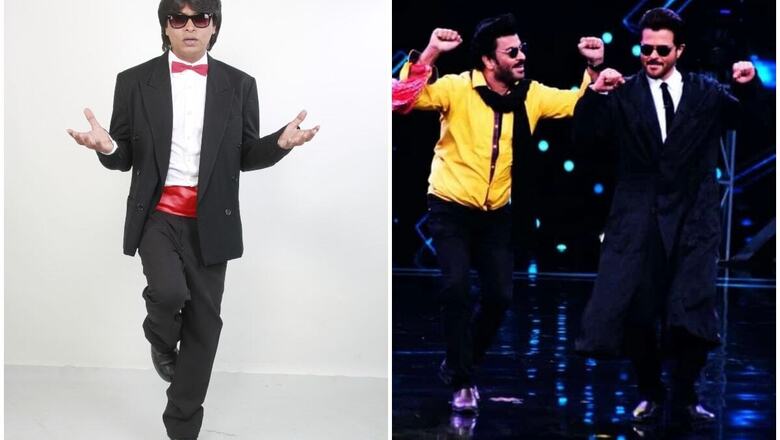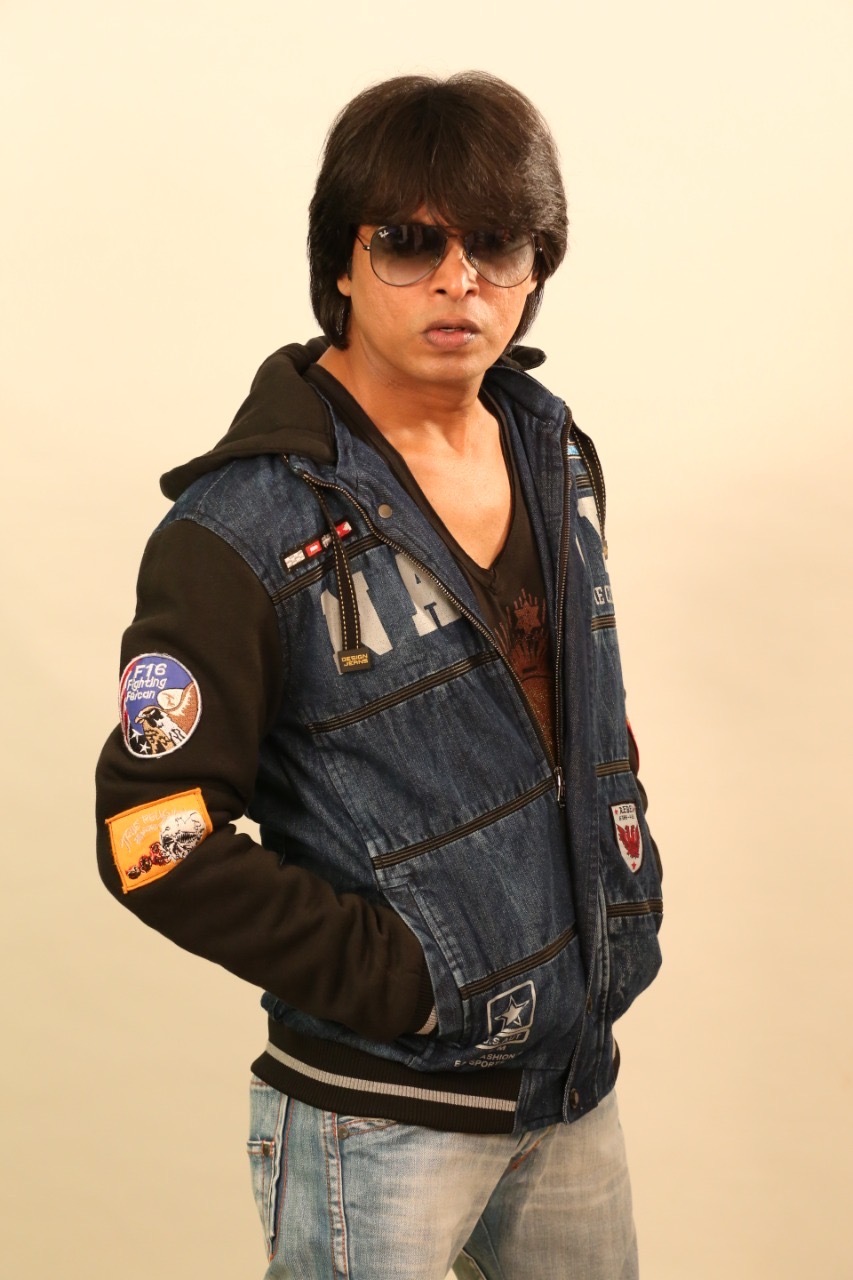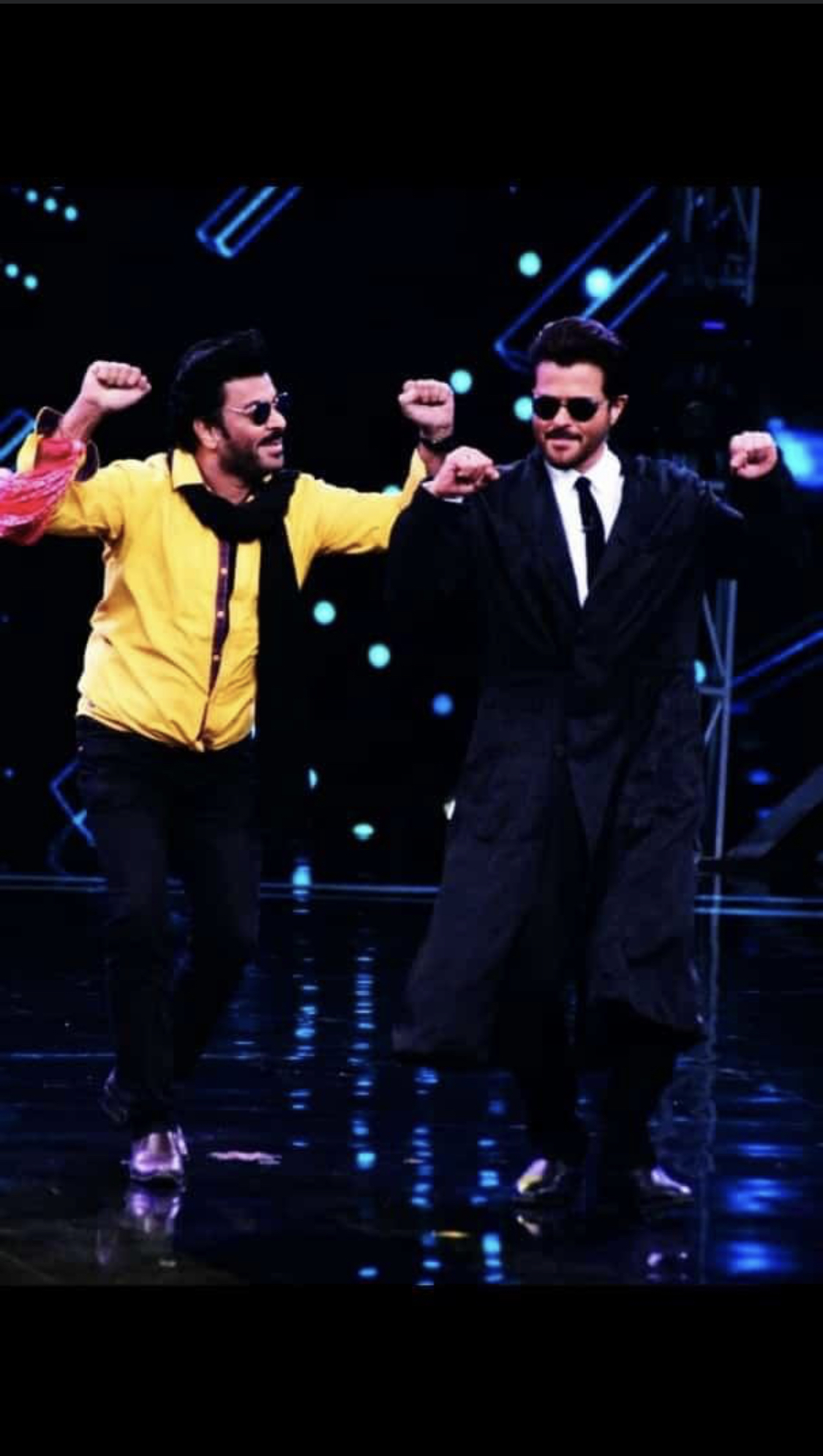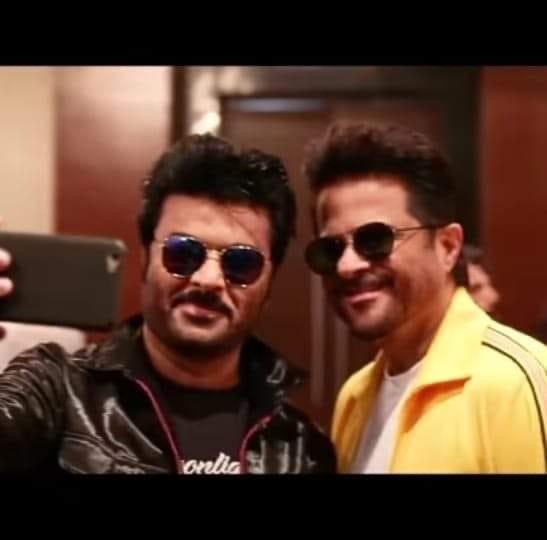
views
In March 2020, the COVID-19 pandemic brought the entire country to a standstill. Many people lost their jobs owing to the lockdown across the country. It also disrupted the Indian film industry at every level, bringing content production to a standstill. As shoots were halted, daily wage workers suffered the most as they went jobless for months. Despite the resumption of shoot, many artists are still facing the repercussions.
Among them is Raju Rahikwar, a looaklike of Shah Rukh Khan.
Raju, 45, had never imagined he would make a living as a lookalike actor, a popular trend in Indian film industry. But when his resemblance to SRK started bringing him money and fame, Rahikwar gladly slipped into the role of Junior SRK.
Raju, whose real name is Durga Rahikwar, decided to change his name to Raju in 1992. “My friends told me my hairstyle and face resembles Shah Rukh Khan, whose films were becoming very popular then,” he says Rahikwar. Raju was the name of Khan’s character in the 1992 Hindi film Raju Ban Gaya Gentleman.
But the pandemic has put him out of work. Finding it difficult to support his family, Raju decided to start his own business. “I realised things weren’t going to get better anytime soon and so last year in June, I started a small business selling hand sanitisers and masks. I need to feed my family and also pay the school fees of my children,” he shares.

The few jobs he still gets do not earn him enough. “In September, when film shooting resumed, a friend needed some assistance and gave me work in Dubai where I worked for a month,” said Raju. “I went there for around a month and started selling lights and other materials. One day in the market, I saw a jacket and a laptop bag. I wanted to buy them for my kids, but I had no money. I skipped my meals to save money and buy it. Before 2018, I could afford these things.”
It was not uncommon for him to earn INR 50,000 a month in the decades when SRK’s popularity soared. Raju has performed in shows across the world, including in the US, the UK, Kenya, Dubai, Singapore, and other countries with large Indian-origin communities.
“In October, I was supposed to fly to the the US for a show, but could not because of travel restrictions,” he said.
Apart from the pandemic, Khan’s absence from the big screen has also affected Raju. The 55-year-old actor is one of the biggest superstars in the film industry, but has hit a rough patch. His last few releases haven’t really done well at the box-office. His last released film was Zero (2018) earned Rs 191 crore worldwide, but the actor’s performance as a person with growth impairment was panned by critics and audiences alike.
“If SRK does not work in films, I am out of work as well. My life is dependent on him,” says Raju adding, “Since SRK’s visibility has gone down, no one wants me to perform either. Earlier, I would go to places where SRK could not and entertain people. Now, I have to keep asking event managers for possible shows.”
Like Rahikwar, Zaed Khan has also been finding it difficult to survive. Zaed Khan used to mimic popular actor Sunny Deol, whose last on screen appearance was Bhaiaji Superhit in 2018.
“Mimicking is the only work that I have been doing for so many years,” says Zaed, who is visibly dejected. “I don’t even know what else I can do for a living. There are seven members in my family who are dependent on my income. I hardly get to do any shows.”
The actor turned politician in 2019, when he became a member of Parliament from Gurdaspur (Punjab) in Bharatiya Janata Party. During the 2019 general elections in India, Zaed did several roadshows for political parties, but this was a short-lived success.
“Now no one calls me for political rallies as elections are far away. He doesn’t do any movies and there are hardly any live events which are permitted,” he said, adding that his friends have been helping him financially, but this is not a sustainable solution, “I am planning to start a food stall to support my family.”
The industry has, however, tried to support those members who have been worst hit. For instance, superstar Salman Khan has helped out people like Zaed.
“I got Rs 3,000 from Being Human Foundation (a non-government organization run by Salman Khan),” said Zed. “I also got a food coupon worth Rs 1,500 for a few months from the Federation of Western India Cine Employees (FWICE). But now, even that has stopped.”
The FWICE is an umbrella body of the film industry workers’ union in Mumbai. The All India Look Alike Association (AILAA), a union of lookalike actors, is affiliated with it.
“We need the industry to do something for us,” said Arif Khan, the president of AILAA. For years, he has worked as Junior Anil Kapoor.
Arif has been praised by Anil Kapoor in the past. But he, too, does not have a lot of work coming his way. “As there are no film or ad shoots and events going on, the lookalikes have been jobless. With the restrictions being lifted, we have started making a few appearances but that is not enough for survival. A lot has changed in the last one year.”

Over the years, the popularity of lookalike actors has diminished as superstars have become more accessible to fans over social media. The pandemic made matters worse. Arif says, “Thanks to social media, the audience today can connect to their stars directly. People get all the updates about their favorite stars at the click of a button. Survival has become really difficult for us.”

But all is not lost. Raju is hopeful of his idol making a comeback. “Shah Rukh bhai has started shooting for Pathan which hopefully will surely be a blockbuster. He will be back soon and I will too,” he concludes.
Read all the Latest News, Breaking News and Coronavirus News here.


















Comments
0 comment